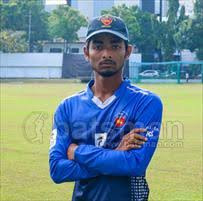Lee Kenneth Germon is a former professional cricket player from New Zealand, known for his leadership skills and contribution to the game as both a wicketkeeper and a batter. Born on September 24, 1967, in Christchurch, New Zealand, Germon’s cricketing journey is a testament to his determination and commitment to the sport.
Although Germon had no previous Test experience, his proven leadership skills and respect among the players led him to be appointed as the captain of the New Zealand cricket team during a turbulent time in the administration of the game. Following the controversy during the tour of South Africa in 1994-5 and a slump in form during the home centenary season, the New Zealand cricket administration underwent significant changes. These changes included the appointment of Glenn Turner as the new coach, who believed Germon was the ideal candidate to lead the team on and off the field by setting a disciplined example.
Germon’s leadership abilities were honed during his time with the Canterbury team, where he successfully transformed an ailing team into one of the best provincial teams in the country. Although primarily a wicketkeeper, Germon’s batting skills were also noteworthy, often batting in the lower-middle order. To accommodate him in the team, Adam Parore was converted into a specialist batsman, highlighting Germon’s value to the side.
As a wicketkeeper, Germon showcased his skills behind the stumps, although he was occasionally inconsistent, particularly while standing up to the stumps. However, his prowess as a batsman shone through, with a particular penchant for hitting boundaries square on the off side off the back foot. Germon’s batting form during his captaincy in India was a testament to his ability to lead by example.
Germon’s talent was not limited to Test cricket; he proved himself as a versatile player in the One-Day Internationals (ODIs) as well. On occasions when the team required a reliable number three batsman, Germon stepped up to the challenge and delivered outstanding performances. One such notable performance was during the 1996 World Cup quarter-final against Australia, where Germon’s partnership with Chris Harris played a crucial role in New Zealand’s success.
However, as the coaching and selection staff changed, Germon’s form started to decline under new coach Steve Rixon. He also began losing the respect of some players. Without the support of Turner, Germon eventually lost his place in the team, bringing a bittersweet end to his international career.
While his time in international cricket had its ups and downs, Germon’s contribution to New Zealand cricket cannot be undermined. His leadership, batting skills, and abilities behind the stumps left an indelible mark on the game. Even after retiring from professional cricket, Germon remains connected to the sport, serving in various administrative roles and continuing to support the development of cricket in New Zealand.
As an individual, Germon is known for his dedication, discipline, and strong work ethic, which he carried both on and off the field throughout his career. His impact on the game and his legacy as a leader and iconic cricketer from New Zealand will be remembered for years to come.




